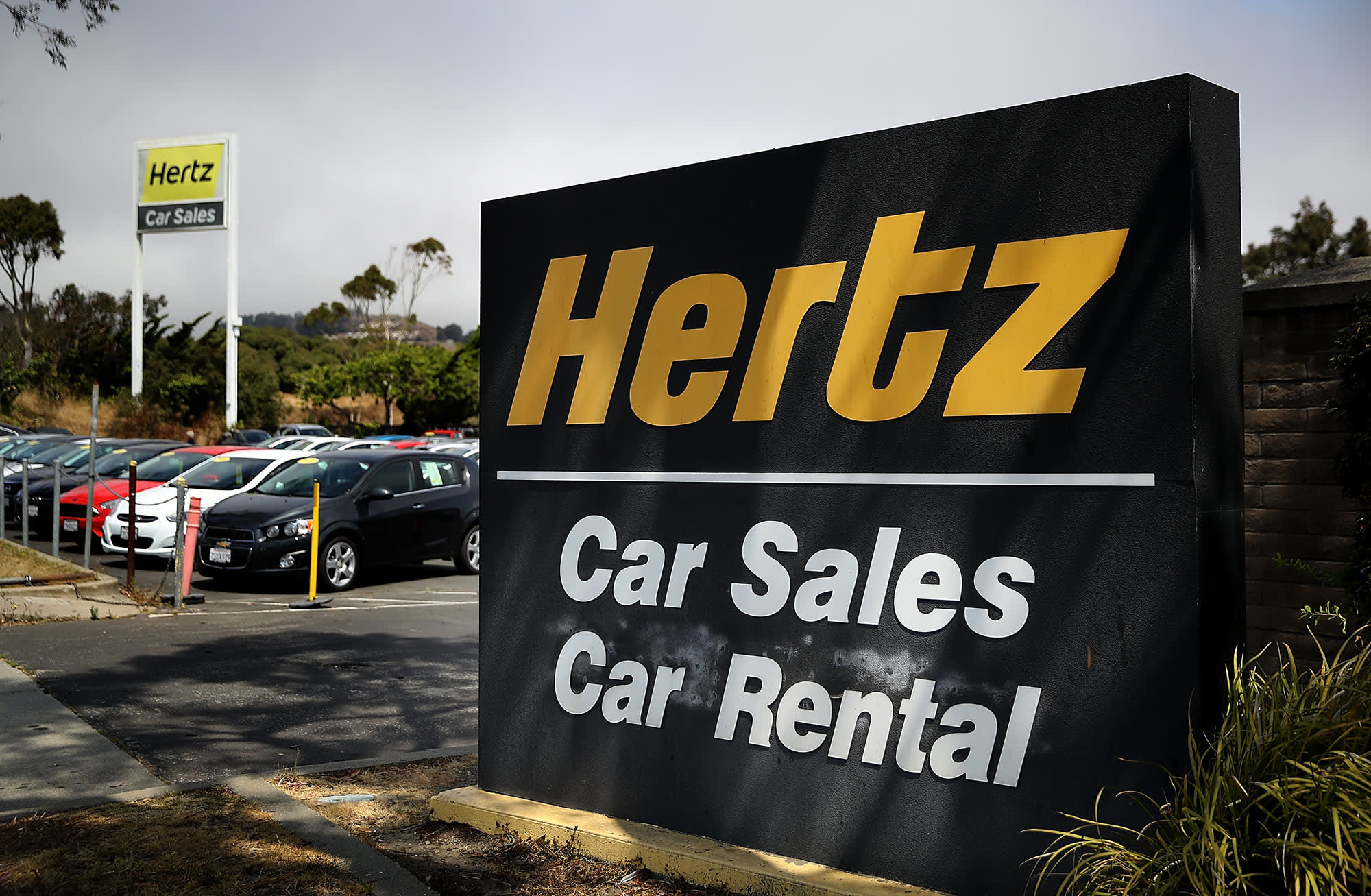A sign is posted in front of a Hertz car sales and rental car office on August 8, 2017 in South San Francisco, California.
Getty Images
Hertz Global Holdings warned potential buyers in its common stock offering that it’s almost certain that the equity will become worthless.
Hertz said in a government filing Monday that it would sell up to $500 million in common stock. In that very same filing, the company said those shares won’t be worth anything unless those with higher priority in a bankruptcy, such as the company’s debtholders, are paid in full. And that, the company said, would only happen if there is an astounding change in the progress of Covid-19 and a significant turnaround in travel trends.
The company said the following in its filing with the Securities and Exchange Commission:
“Although we cannot predict how our common stock will be treated under a plan, we expect that common stock holders would not receive a recovery through any plan unless the holders of more senior claims and interests, such as secured and unsecured indebtedness (which is currently trading at a significant discount), are paid in full, which would require a significant and rapid and currently unanticipated improvement in business conditions to pre-COVID-19 or close to pre-COVID-19 levels.”
The U.S. Bankruptcy Court for the District of Delaware on Friday approved Hertz to sell up to $1 billion in stock in a last-ditch effort by the company to cash in on its volatile share price and haggles with the New York Stock Exchange to not be delisted.
As a company exposed to travel demand, Hertz has faced significant headwinds throughout the spring as Covid-19 and efforts to contain its spread have kept Americans at home and prevented the vast majority of everyday travel.
The stock sale is a rare move for a company going through Chapter 11 bankruptcy since common shareholders are last in line when assets are allocated during court proceedings. People and entities that hold Hertz’s bonds will receive payouts first as debtholders receive priority during bankruptcies.
Also unusual is the volatility seen in Hertz stock over the last month, even after the company filed Chapter 11 on May 22. The share price, which bottomed around 40 cents per share on May 26, is up 475% since then at around $2.30.
But the shares dropped 19% on Monday.
The stock has remained popular among retail investors even as others, such as CNBC’s Jim Cramer, thinks “it’s worth zero.” The “Mad Money” host said Monday that retail traders and investors buying stocks like Hertz should first conduct research and due diligence before tying money to the equity.
“It’s not a roulette game. This is a game, if you want to call it that, of skill. And the skill means having an edge, and the edge comes from the debt side,” Cramer said.
Subscribe to CNBC PRO for exclusive insights and analysis, and live business day programming from around the world.
